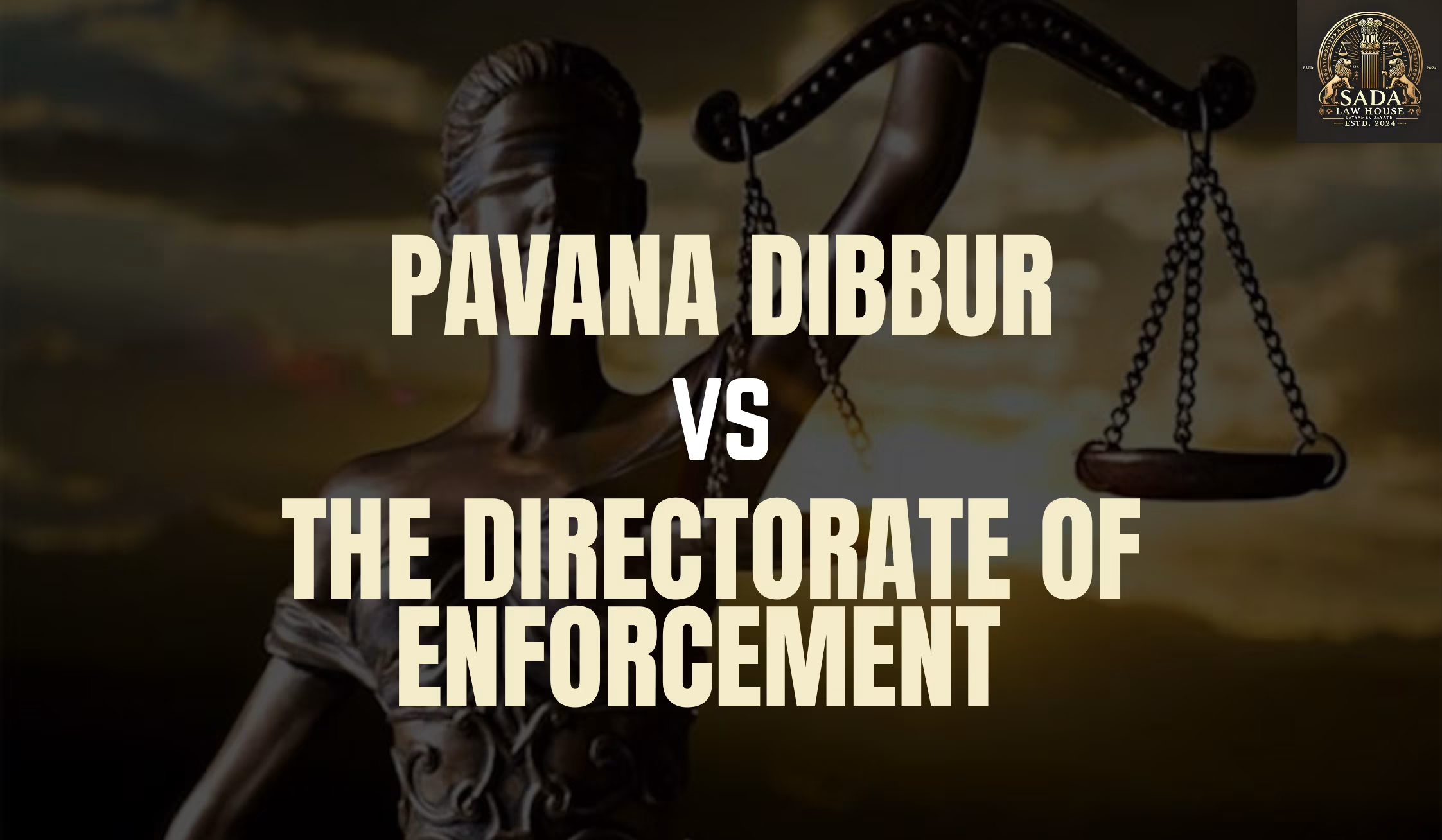ED Cannot Invoke PMLA Without Scheduled Offence: Supreme Court in Pavana Dibbur Case
- REHA BHARGAV
- 08 June 2025

The Supreme Court ruled in Pavana Dibbur v. Directorate of Enforcement that the Prevention of Money Laundering Act (PMLA) cannot be invoked using Section 120B IPC unless the alleged conspiracy links directly to a scheduled offence. Learn the legal impact of this landmark decision.
Introduction
The Supreme Court’s judgment in the case of Pavana Dibbur v. The Directorate of Enforcement (delivered on 29 November 2023) clarifies the boundaries of the Prevention of Money Laundering Act, 2002 (PMLA). At the heart of the case was whether a charge of criminal conspiracy under Section 120B of the Indian Penal Code could trigger PMLA proceedings, even if it wasn’t linked to a scheduled offence under the Act.
The Court’s verdict underscores the legal necessity of a predicate or scheduled offence before invoking PMLA, marking a significant development in India’s criminal jurisprudence relating to economic offences and procedural safeguards.
Facts of the Case
Pavana Dibbur, a former Vice-Chancellor of Alliance University, purchased properties in 2013 and 2019 worth ₹13.5 crore and ₹2.47 crore respectively. The Enforcement Directorate (ED) alleged that these transactions were linked to a criminal conspiracy involving misappropriated university funds.
The ED registered an Enforcement Case Information Report (ECIR) in 2020 and initiated proceedings under the PMLA based on FIRs that invoked Section 120B IPC. However, there was no direct connection to any offence listed in the schedule of PMLA.
Despite this, the Special Court took cognizance, leading Pavana Dibbur to approach the Supreme Court of India.
Legal Issue
Key Question:
Can the Enforcement Directorate invoke the Prevention of Money Laundering Act (PMLA) solely based on criminal conspiracy under IPC Section 120B when it is not connected to a scheduled offence?
Petitioner’s Arguments
No Predicate Offence: Dibbur argued that PMLA cannot apply unless a predicate (scheduled) offence is established. Section 120B IPC alone does not qualify unless tied to such an offence.
Unlawful Attachment: The attachment of her assets was arbitrary, violating PMLA requirements and her constitutional rights.
Violation of Natural Justice: She was not granted a fair opportunity to present her case, breaching natural justice principles.
Excess of ED’s Powers: The ED overstepped its legal authority by acting without foundational legal grounds.
Strict Proof Required: Serious allegations like money laundering demand strict evidentiary standards, which were not met.
Respondent’s Arguments
PMLA Justified: The ED claimed that the alleged criminal conspiracy was linked to fund misappropriation, qualifying as money laundering.
Grounds for Attachment: Assets were allegedly purchased using proceeds of crime, satisfying PMLA conditions.
Preventive Action: PMLA enables early intervention to prevent dissipation of illicit assets.
Due Procedure Followed: The ED maintained that it had complied with all legal and procedural norms.
Public Interest Priority: The ED emphasized the need to deter economic crime and safeguard public interest.
Judgment Summary
The Supreme Court, in a bench comprising Justice Abhay S. Oka and Justice Pankaj Mithal, ruled that:
Section 120B IPC alone does not qualify as a predicate offence under PMLA unless tied to a scheduled offence listed in the Act.
Since no scheduled offence was established in Dibbur’s case, invoking PMLA was unlawful.
The attachment of properties and initiation of proceedings lacked legal justification.
The Court quashed the complaint under PMLA, reaffirming the need for strict adherence to statutory provisions and constitutional protections.
This decision places clear limits on ED’s powers and emphasizes that criminal conspiracy alone cannot trigger PMLA without direct linkage to a scheduled crime.
Conclusion
The ruling in Pavana Dibbur v. Directorate of Enforcement strengthens due process and reinforces that the Prevention of Money Laundering Act cannot be misused in the absence of a clear predicate offence. The judgment protects individuals from arbitrary enforcement, ensuring that economic laws are used responsibly and within constitutional bounds.
By insisting on a direct link to scheduled offences, the Supreme Court has set a vital precedent for fair investigation and restraint in the use of draconian provisions under PMLA. This decision is a major step toward balancing the fight against economic crime with the fundamental rights of individuals.
Case Laws






